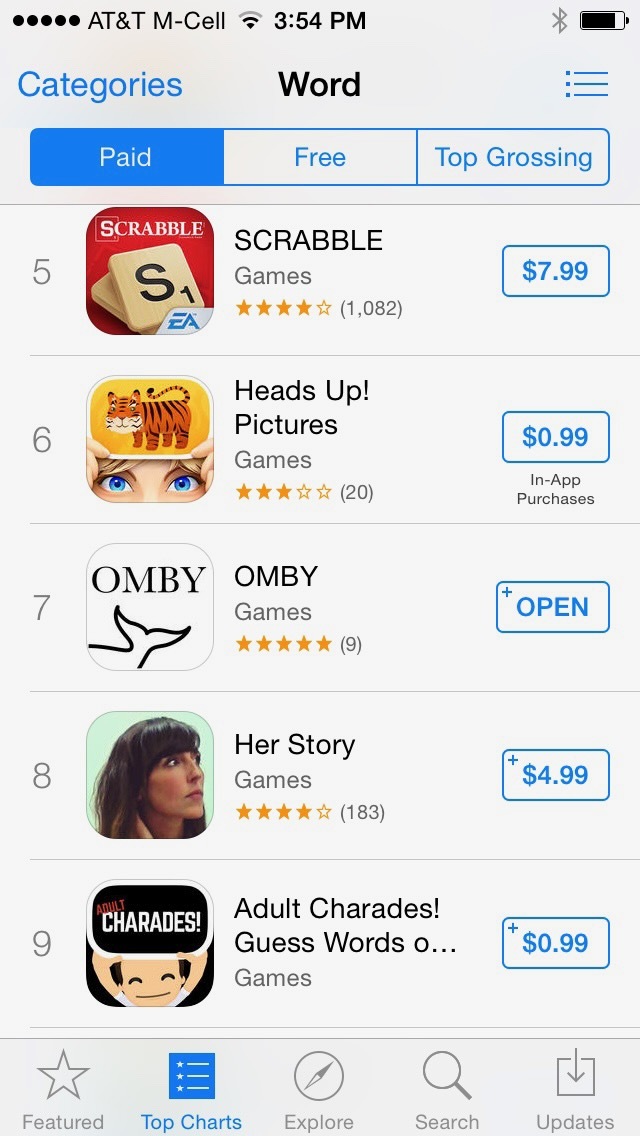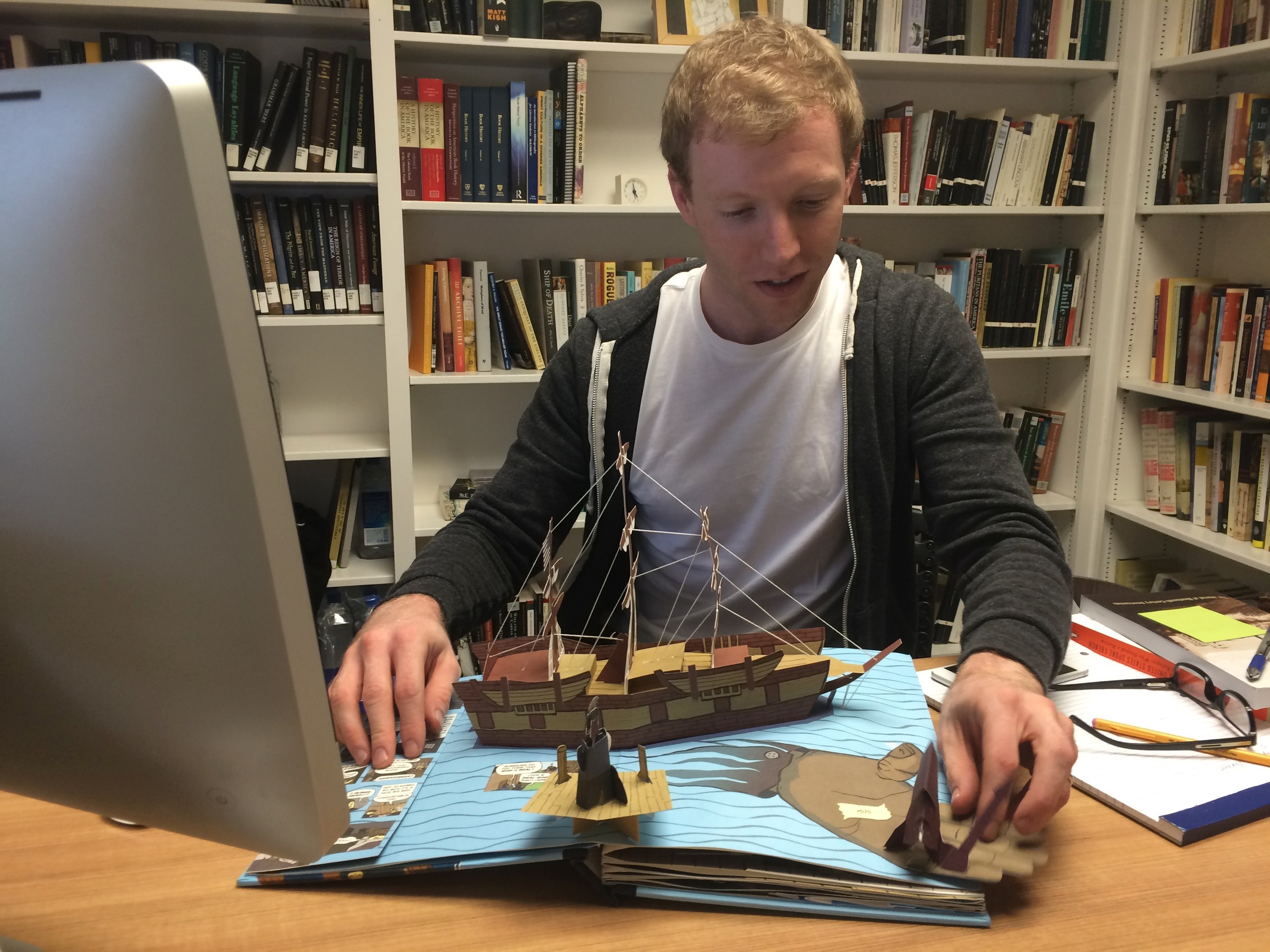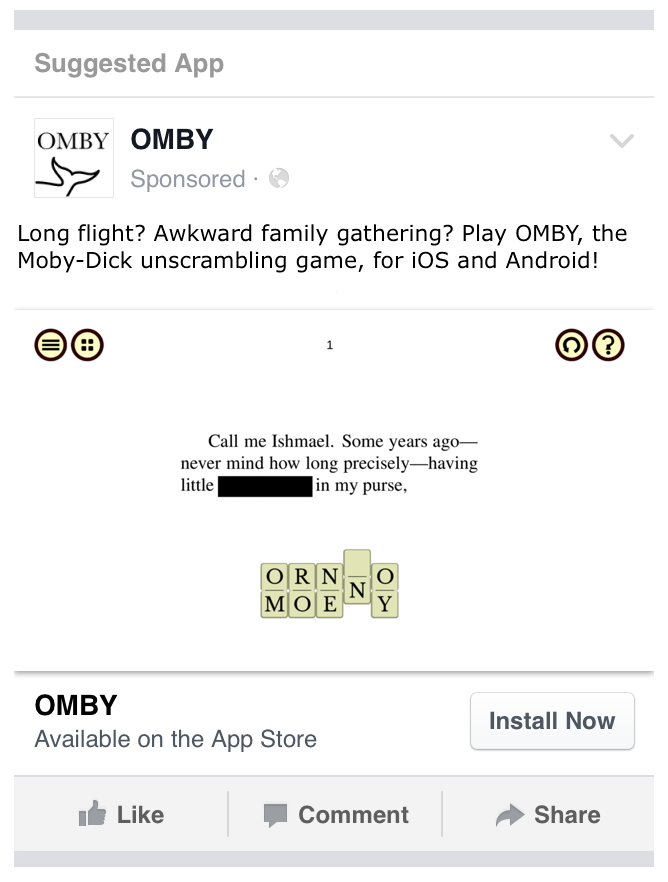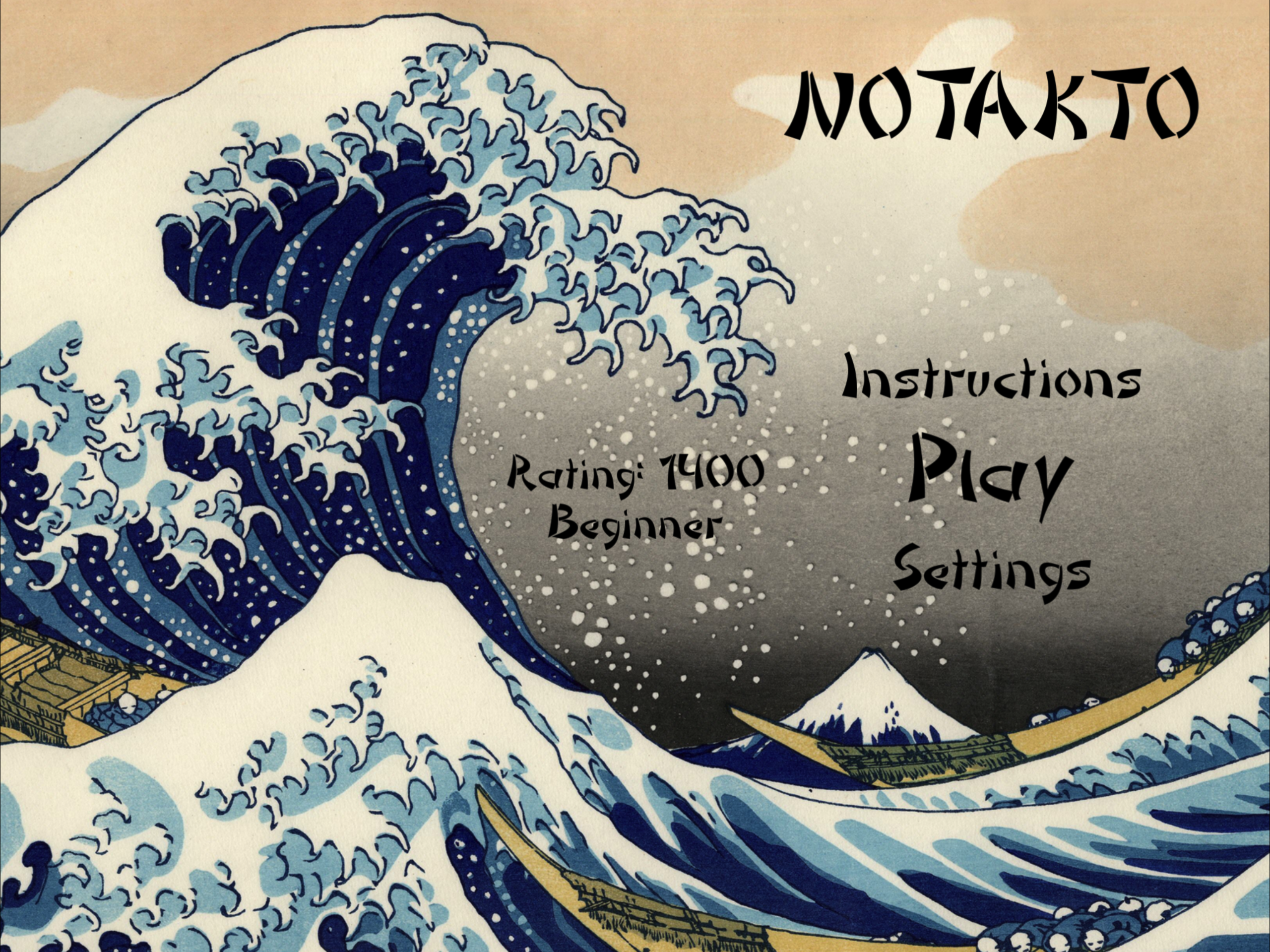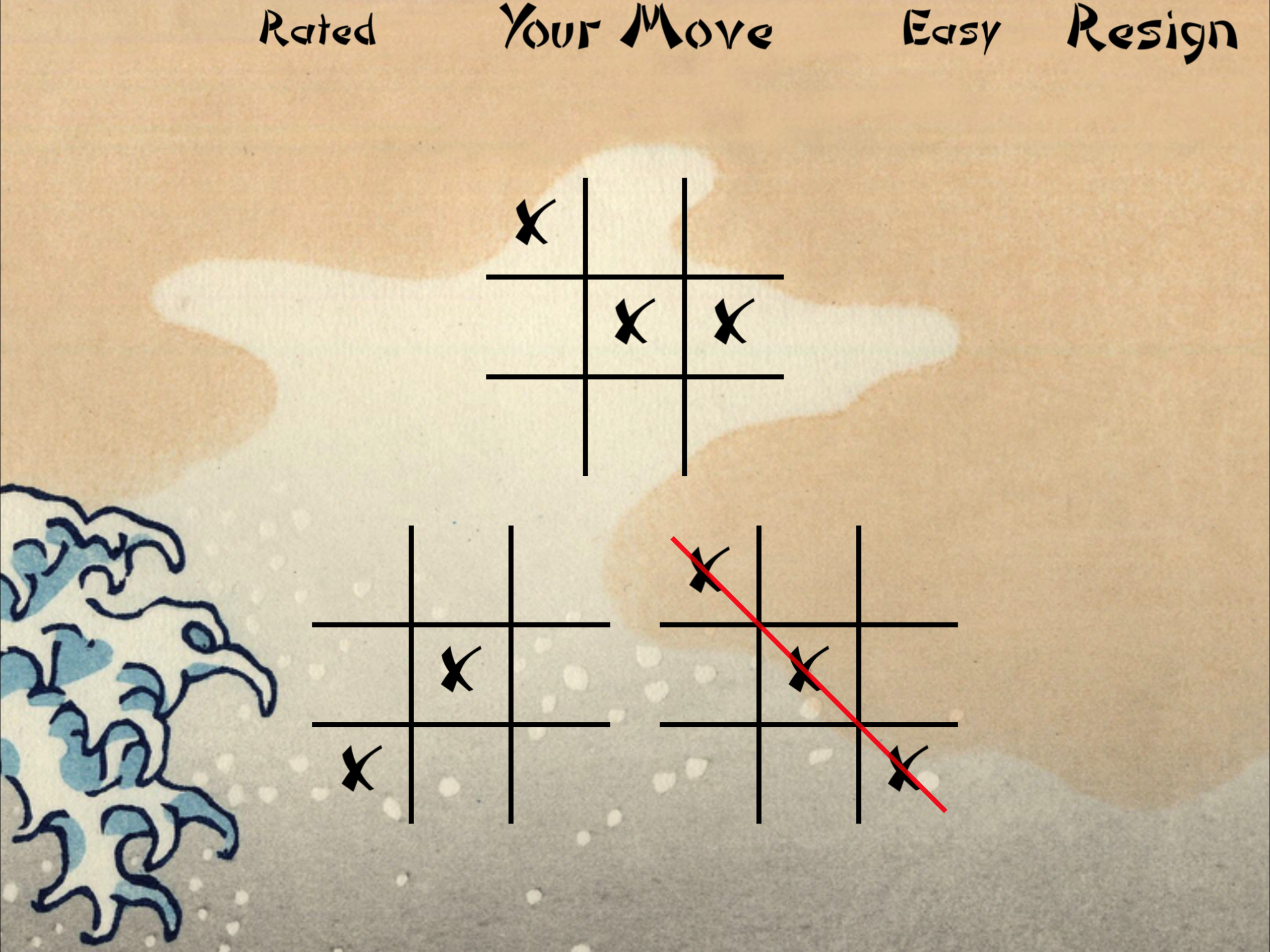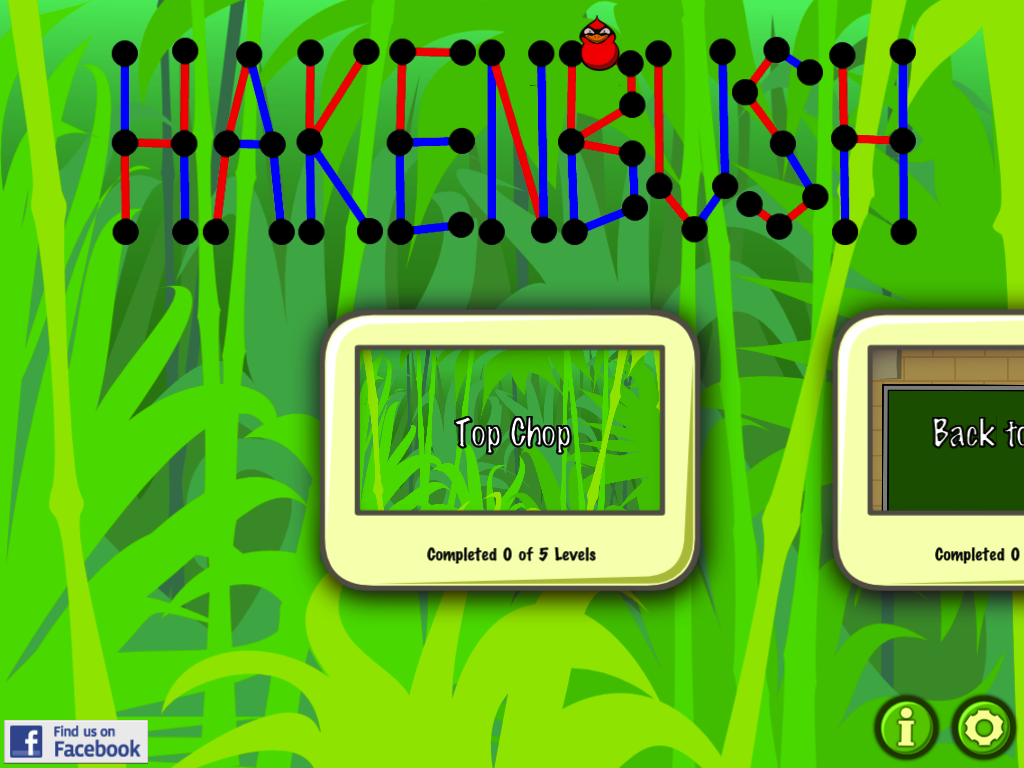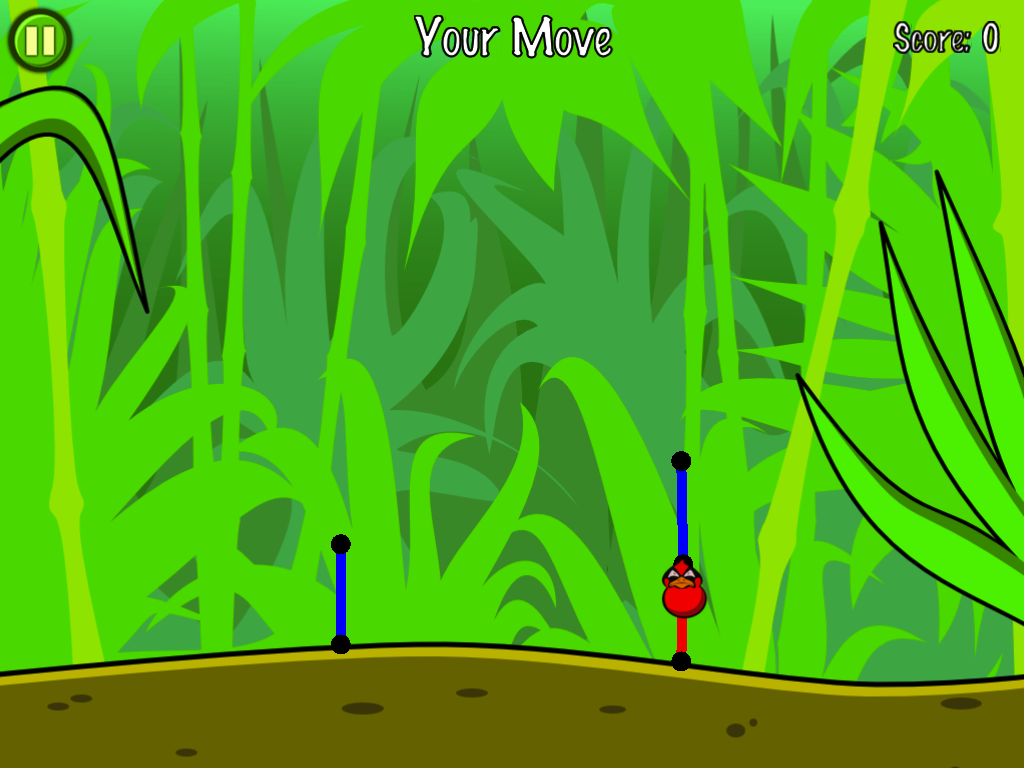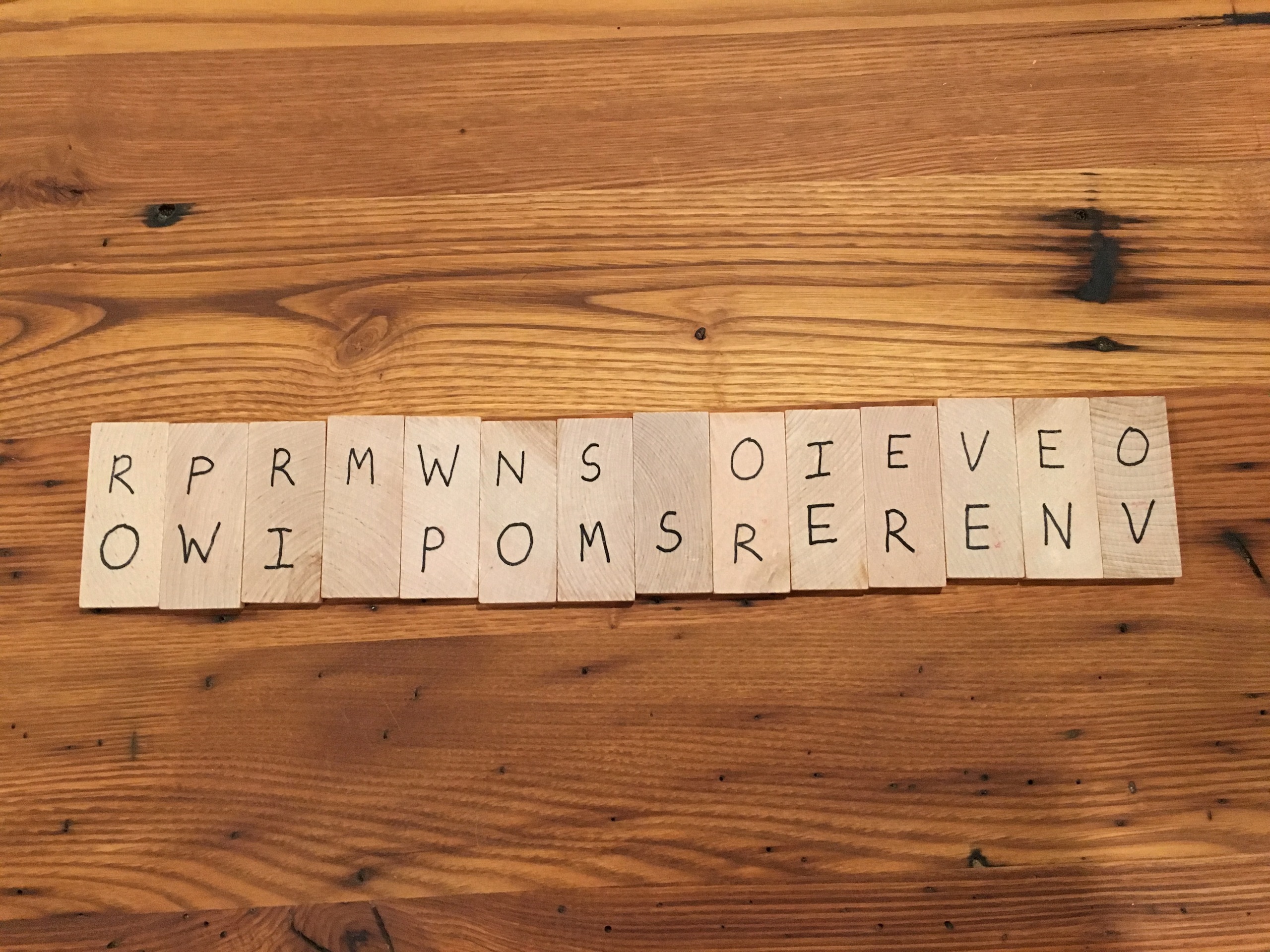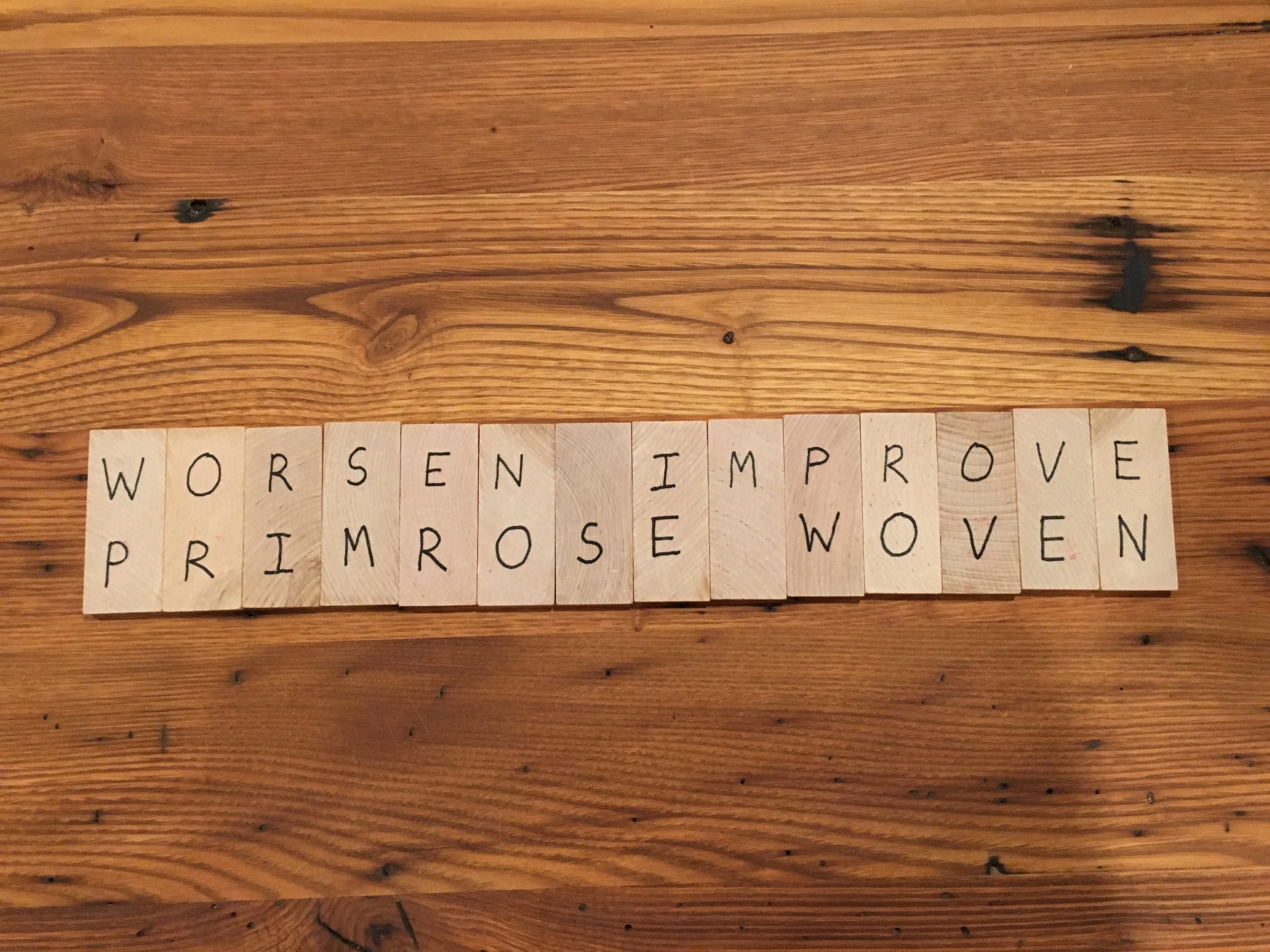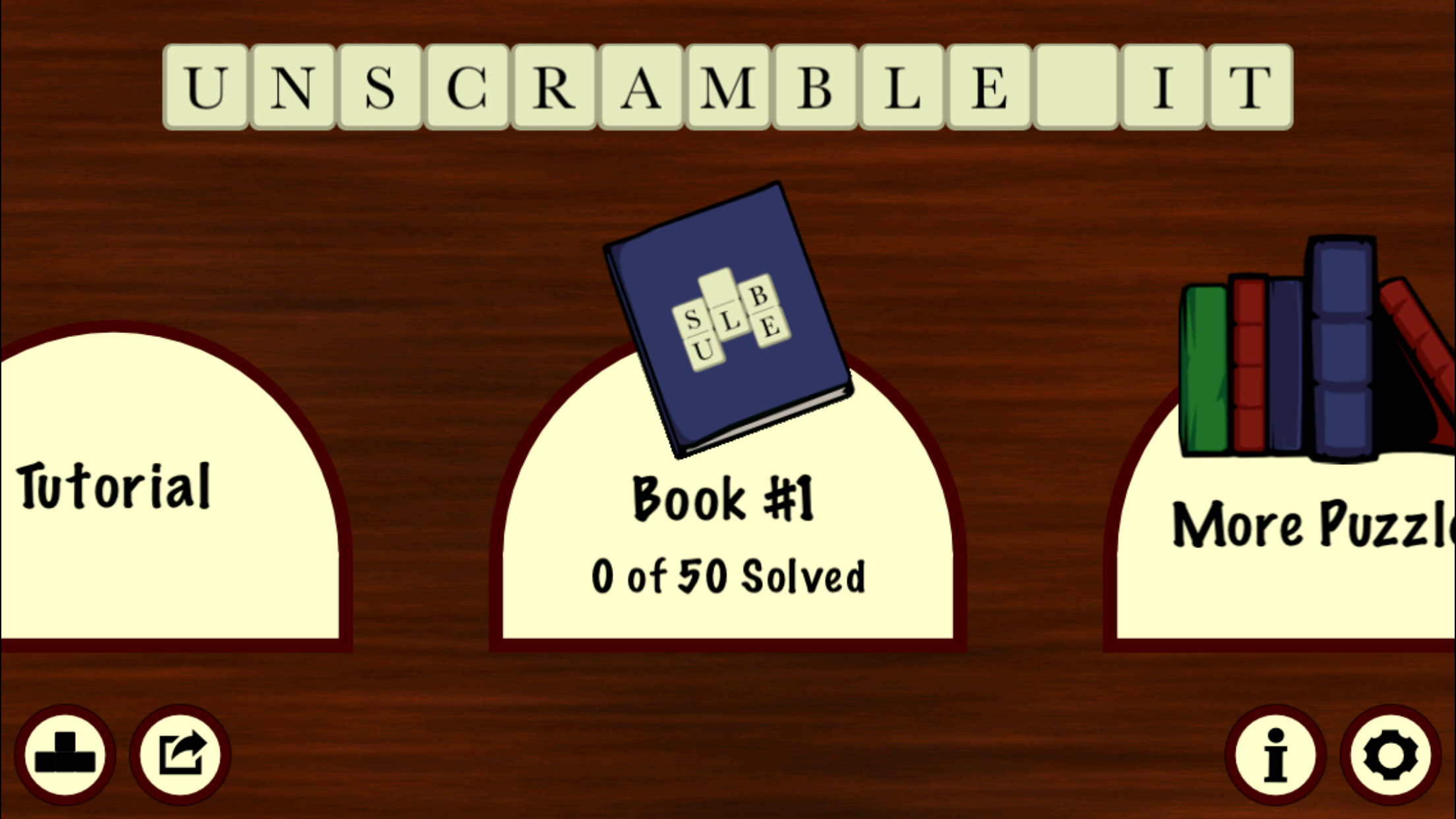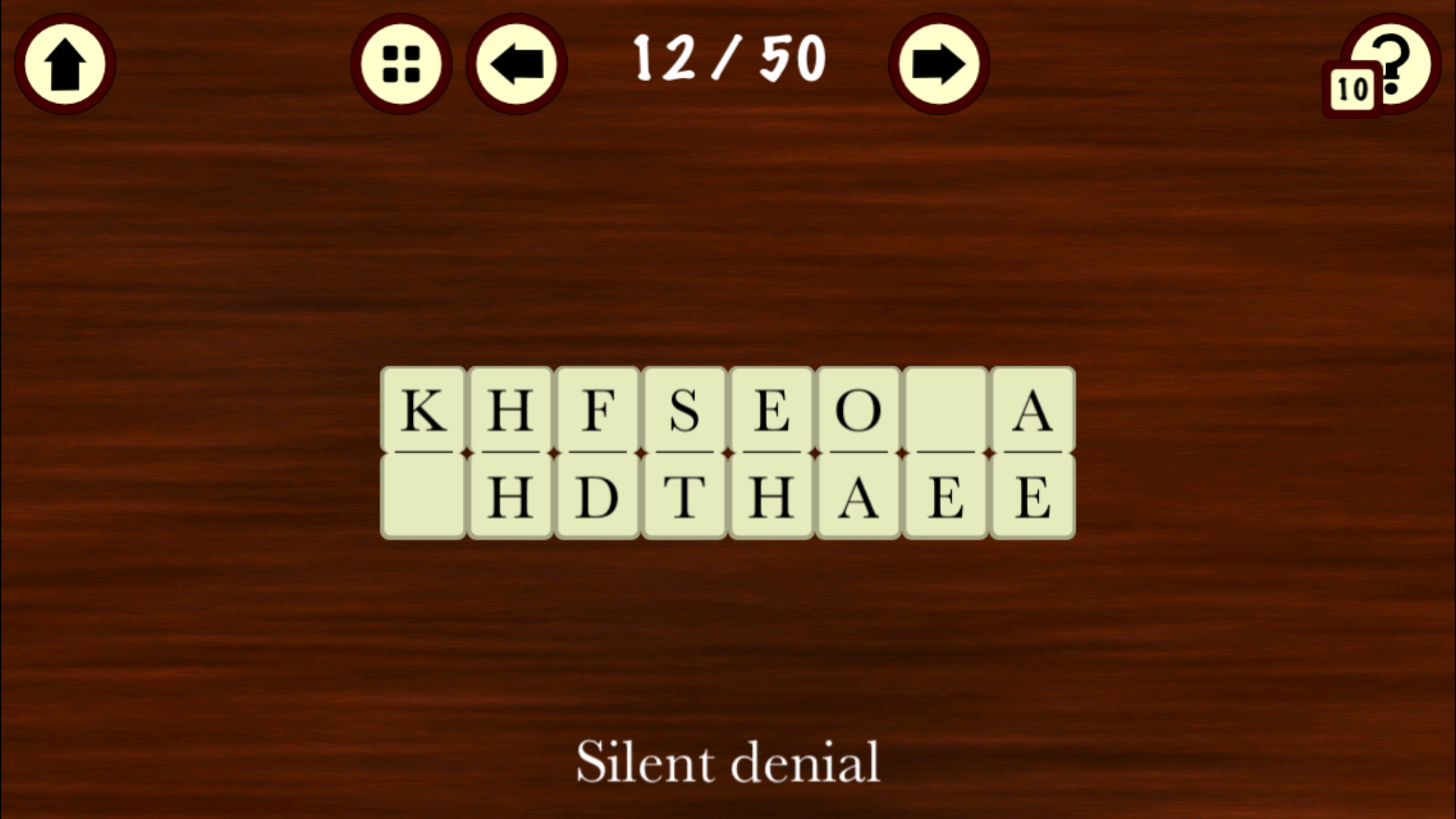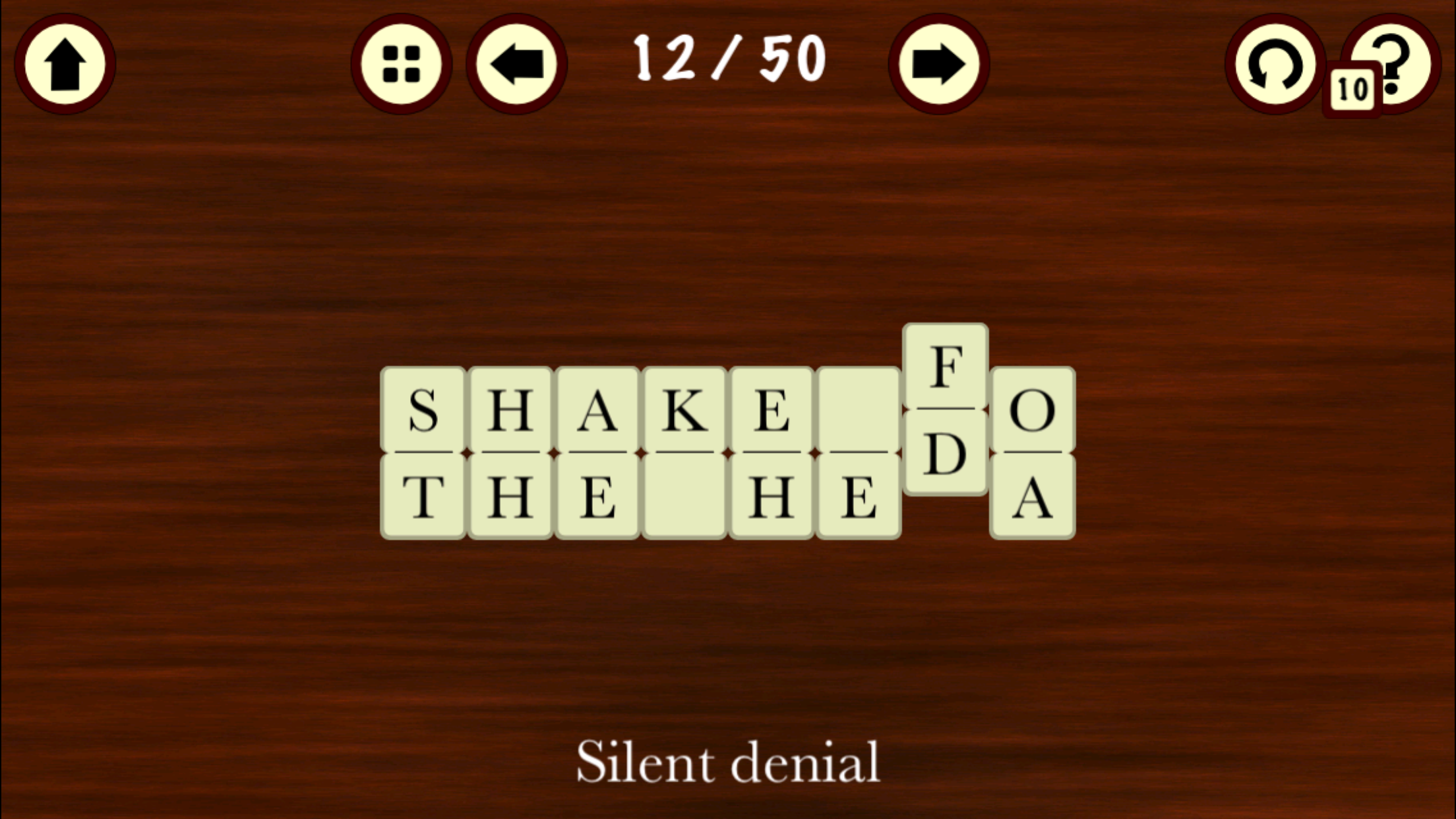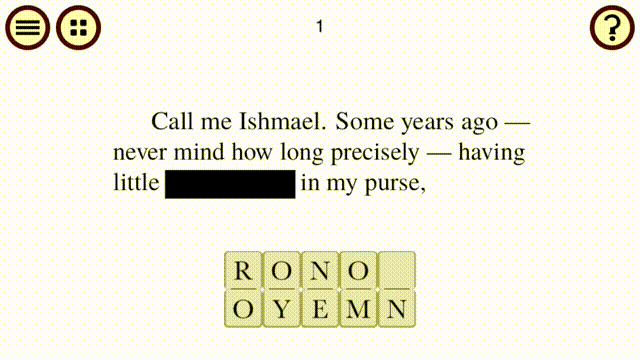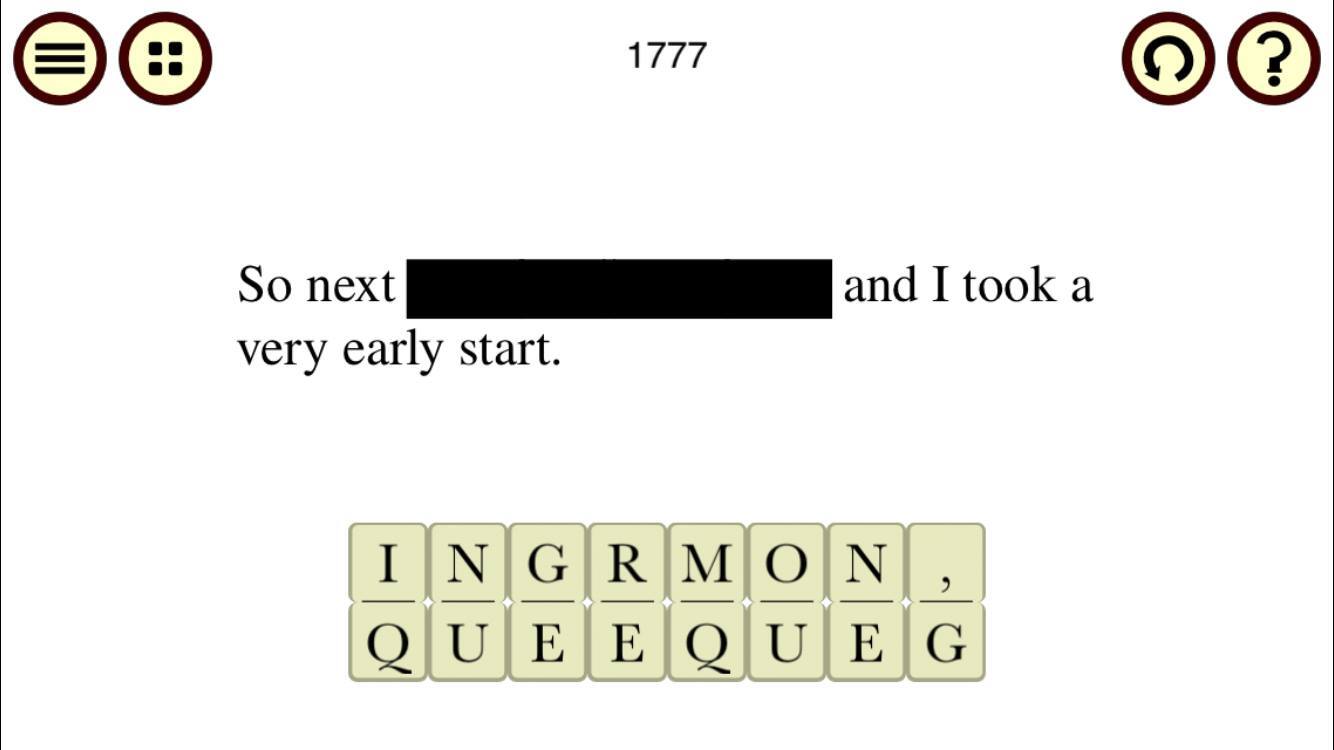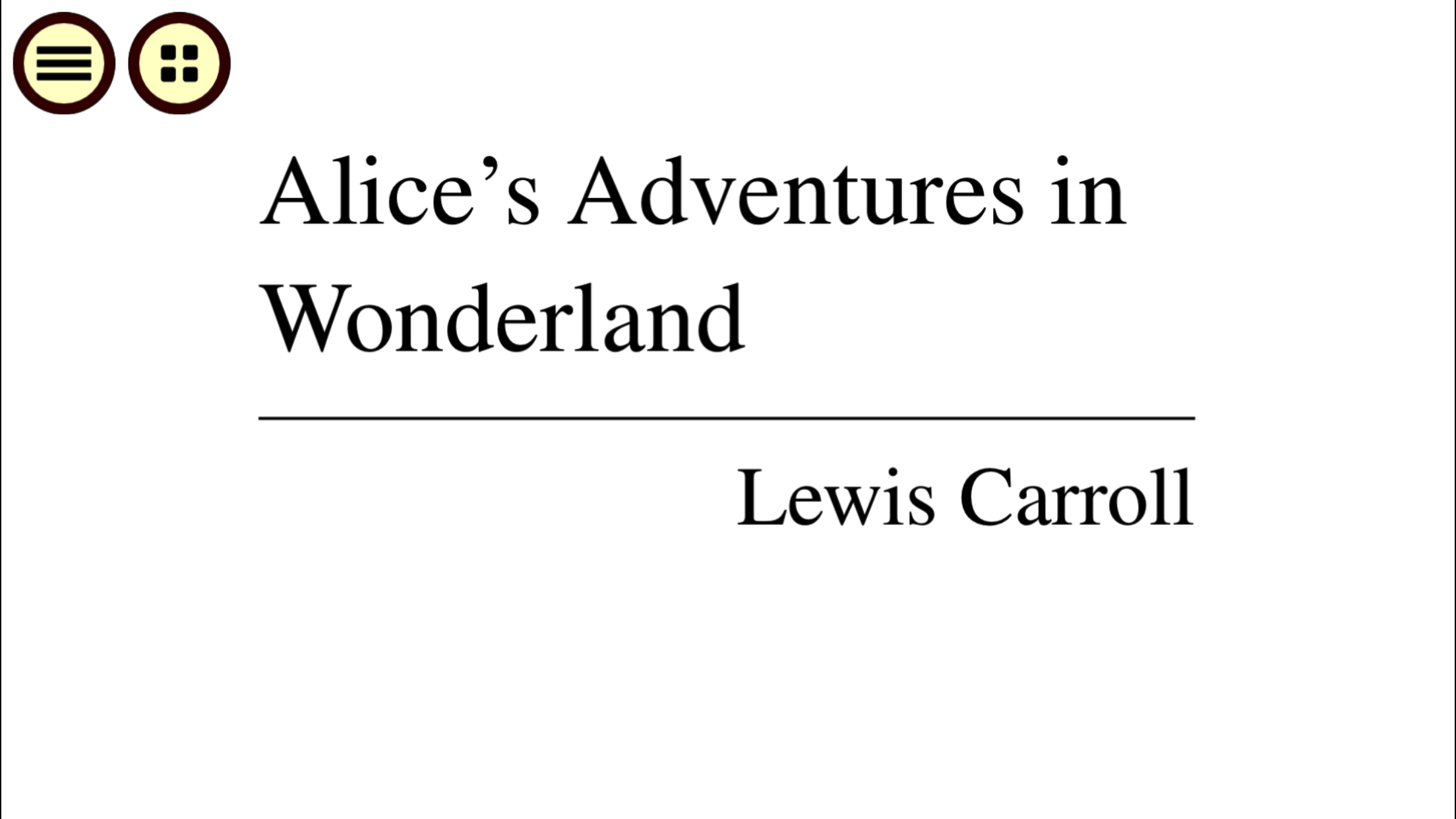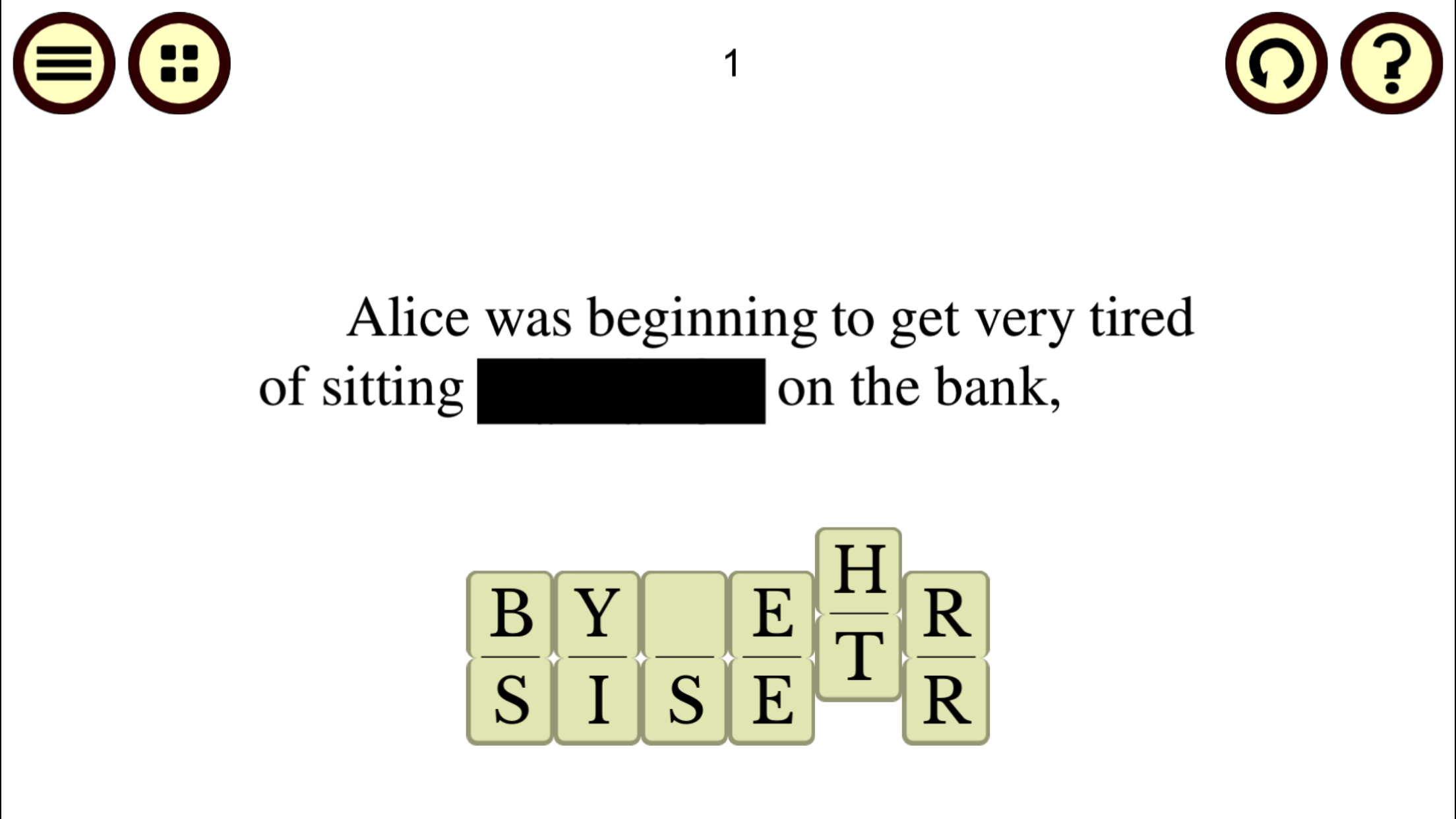10 Years of OMBY (2025)

July 16, 2025 will mark the 10 year anniversary of OMBY, an app that tricks you into slowly reading Moby-Dick through a series of 10,395 scrambled word puzzles.
One of several wordy and mathy puzzle projects produced with my longtime friend and collaborator Thane Plambeck, during our Counterwave Inc years, OMBY was an unexpected success: peaking at #7 in Paid Word Games on Aug 30, 2015 (at a price of $2.99).
The timing of this climb up the charts was entirely due to the publication of Tim Cassedy's amazing review A Blankness Full of Meaning published in Avidly, a channel of the Los Angeles Review of Books, on Aug 27, 2015.
Tim saw, more clearly than we did, why this puzzle format worked so well with Moby-Dick:
What I love about this is the occasion it provides to engage Moby-Dick on the level of the word, which might be Moby-Dick’s weirdest and most delicious level. It’s almost always easier to engage Moby-Dick in terms of theme or plot, which means attending to parts of the text that have particularly vivid narrative or thematic significance. OMBY calls for a different kind of attention. Its puzzles aren’t subordinated to each other the way plot elements are; they’re additive: one and another and another and another and another. The puzzles that happen to be narratively significant require no more or less attention than any of the others.
Moby-Dick rewards this kind of equal-opportunity close reading because every freaking page is dense with word-twisting images as aching as Bulkington’s apotheosis, as audacious as Ishmael’s sperm-hands, and as verbally disorienting as “a colorless, all-color of atheism.” OMBY is like a friend who accompanies me to the Louvre and keeps me from striding past a hundred unfamiliar masterworks on my way to see the ones I already know. In the Louvre, though, the art is already on the wall. OMBY lets me co-create Moby-Dick’s unfamiliar ingenuities, searching like Melville for the right words, massaging the letters into something meaningful.
I found Tim on Twitter after OMBY's release and connected with him through mutual friends. Tim is an associate professor of English at Southern Methodist University and has an amazing collection of Moby-Dick books and artifacts in his office
Tim is also the maker of Dick: a card game based on the novel by Herman Melville!
The initial release of OMBY on July 16, 2015 was for iOS only. We followed up with an Android release on November 10, 2016 and had a little fun running a Facebook ad targeted at English PhDs and graduate students that Thanksgiving
We spent $59.60 over three days for 2946 impressions, got 58 clicks, and had 7 purchases (3 on Android). So a 2% click-through rate followed by a 12% conversion rate. Good fun, but obviously not profitable at a cost of $8.50 per $2.99 sale unless some of those PhDs assigned OMBY to their undergraduate students ;-)
OMBY has been free to download since 2020, with no ads or upsells, and is still attracting new users. I've heard from a dozen or so people who have finished it, one while on board a ship in the Southern Ocean! I'm only about a third of the way through it myself, on puzzle 4506 in chapter 54. I find it's a great way to pass time on long flights—maybe I need to travel more!
And so I find myself continuing to support OMBY 10 years on. You might think that once an app is done, and there are no bugs to fix or features to add, that it wouldn't be any work to keep it in the app stores, but that's not the case; new builds, compiled against the latest platform APIs, are periodically required to keep the app listed and available for download.
OMBY is built on Cocos2d-X, an open-source cross-platform C++ game engine that let us support iOS and Android with a single codebase and also insulates us somewhat from platform API changes. Unfortunately Cocos2d-X quit getting updates a few years ago, its developers having shifted priorities, leaving me with the prospect of porting to some other more modern game engine, perhaps ending up with separate codebases for iOS and Android, or just throwing in the towel. I put off doing anything for quite a while before finally starting to look into what it would take to bring Cocos2d-X up-to-date myself, at which point I found a community of other developers in my same position who had already started doing that, under a new project called Axmol. There was a little bit of work switching over, but we're back in business for a while longer!
Backstory
We had published two mathy puzzles, Notakto in 2010, based on combinatorial game research Thane had been doing into X-only Tic-Tac-Toe,
and Hakenbush in 2011, based on a combinatorial game John Conway and Elwyn Berlekamp had studied,
Both were designed for the large screen of the newly released iPad and featured computer opponents capable of perfect play.
For our next project we wanted a wordy puzzle and Thane had something in mind from a post-doctoral internship at a three-letter code-breaking agency: multi-row anagrams, something like re-assembling a page of text that has been cut into vertical strips by a paper shredder. He made a physical prototype and it showed promise
I started writing code and Thane started writing puzzles and we published Unscramble It in 2013, three books of handcrafted multi-row anagram puzzles with crossword-style clues
The first book of 50 puzzles was free and two more books of 150 puzzles each were available for in-app purchase. Unscramble It appealed to a broader audience than our previous mathy puzzles and got a lot more traction. The only problem was that creating the puzzles by hand was a lot of work.
So, with laziness as our driver, we started thinking about how we could automate the creation of clued puzzles. We experimented with scraping Wikipedia for trivia, like names of capital cities or movie titles, but the puzzles weren't very satisfying.
Thane then hit on the idea of taking the entire text of a classic book, like Moby-Dick, and breaking it up sentence-by-sentence into a series of puzzles. The puzzles would be scrambled multi-row anagrams lifted from the text and clued by the context of the surrounding, unscrambled, words.
There were a lot of questions: Would we find enough puzzles to make it interesting? Would the distribution of puzzle difficulties work? How would we render the text to preserve a book-quality reading experience?
We did some experiments to answer those questions and the answers were good! We started developing algorithms to automatically process the text and find the best puzzles, we worked on typesetting the result with print-quality tools, and we kept testing and tuning.
We published OMBY (an anagram of MOBY) in 2015. In it’s final form, it presents a series of over 10,395 puzzles that progressively reveal the entire text of Moby-Dick!
Here are some stats:
135 chapters + epilogue
11,060 pages
10,395 puzzles
distribution of puzzle lengths:
4: 261
5: 319
6: 702
7: 1,838
8: 4,078
9: 1,921
10: 652
11: 328
12: 159
13: 60
14: 77
209,321 words
35,664 scrambled words (17%)
3.43 scrambled words per puzzle (avg)
1,176,358 characters
167,048 scrambled characters (14%)
16 scrambled characters per puzzle (avg)
One of the fun things about these multi-line anagram puzzles is that you can have the correct text on one line and, if that line has repeated characters, the other line can still be scrambled. QUEEQUEG, for example, is very recognizable when you find it in a puzzle, but it has 24 permuations of the Qs, Us, and Es to sort through
Up to this point, all of our apps had been written in Objective-C using the Cocos2d-iPhone game engine and were iOS only. We had a lot of demand for Android support and so I started porting our code over to Cocos2d-X, a newer cross-platform version of the game engine written in C++. We released an Android version of Notakto in early 2016 and followed with an Android version of OMBY later that year.
Of course, once we had developed the tools to convert books to scrambled word puzzles, we couldn't stop.
We published OKBOS (an anagram of BOOKS) in 2017, with nine books
- Alice's Adventures in Wonderland
- Through the Looking-Glass
- Little Women
- Sense and Sensibility
- Pride and Prejudice
- Jane Eyre
- The Adventures of Sherlock Holmes
- Memoirs of Sherlock Holmes
- The Return of Sherlock Holmes
In 2018, we added a tenth book (in support of the Frankenstein Bicentennial Celebration)
- Frankenstein
Note: OKBOS was never as popular as OMBY and I haven't kept it up-to-date in the app stores.
So, happy 10th Anniversary to OMBY! I hope you've all enjoyed it as much as we have.
